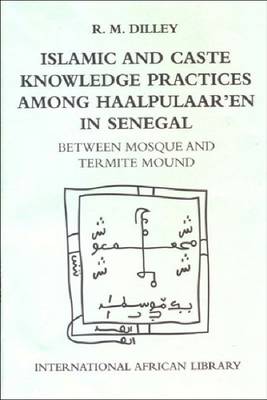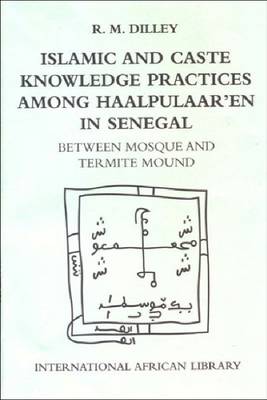
Bedankt voor het vertrouwen het afgelopen jaar! Om jou te bedanken bieden we GRATIS verzending (in België) aan op alles gedurende de hele maand januari.
- Afhalen na 1 uur in een winkel met voorraad
- Gratis thuislevering in België vanaf € 30
- Ruim aanbod met 7 miljoen producten
Bedankt voor het vertrouwen het afgelopen jaar! Om jou te bedanken bieden we GRATIS verzending (in België) aan op alles gedurende de hele maand januari.
- Afhalen na 1 uur in een winkel met voorraad
- Gratis thuislevering in België vanaf € 30
- Ruim aanbod met 7 miljoen producten
Zoeken
Islamic and Caste Knowledge Practices among Haalpulaaren in Senegal
Between Mosque and Termite Mound
Roy (Senior Lecturer in Social Anthropology, University of St An
€ 47,45
+ 94 punten
Omschrijving
This book examines in historical perspective the hitherto little-studied relationship between Islam and caste among the Haalpulaaren of Senegal.
Specificaties
Betrokkenen
- Auteur(s):
- Uitgeverij:
Inhoud
- Aantal bladzijden:
- 270
- Reeks:
Eigenschappen
- Productcode (EAN):
- 9780748619900
- Verschijningsdatum:
- 21/06/2004
- Uitvoering:
- Paperback
- Afmetingen:
- 233 mm x 157 mm
- Gewicht:
- 492 g

Alleen bij Standaard Boekhandel
+ 94 punten op je klantenkaart van Standaard Boekhandel
Beoordelingen
We publiceren alleen reviews die voldoen aan de voorwaarden voor reviews. Bekijk onze voorwaarden voor reviews.









